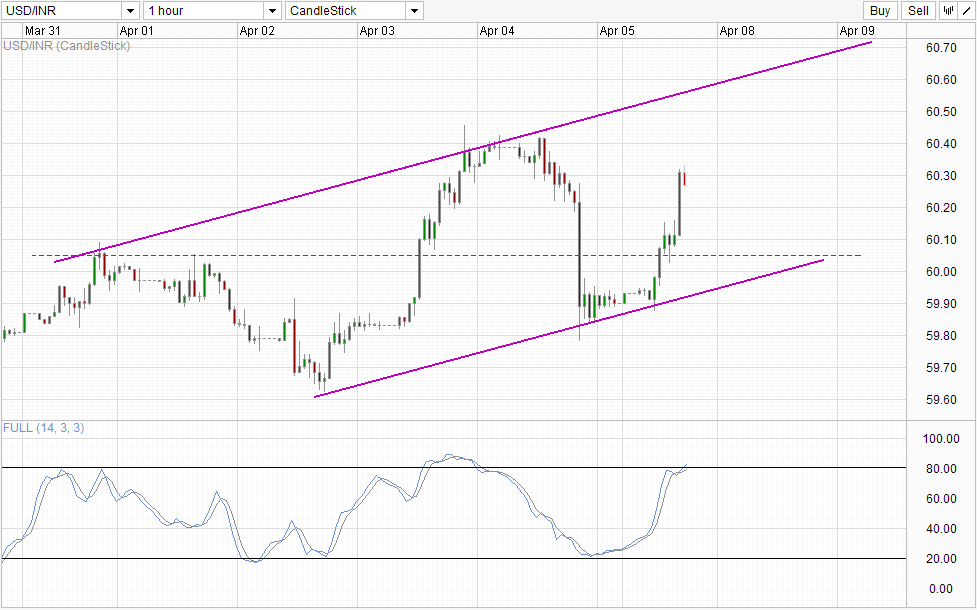Today is the first day of the largest election in the world, where over 814 million Indian citizens will hold a ballot vote that will determine the country's next Government for the next 5 years. This election has been hyped up as the one that would change India's fortunes, as high inflation and lowering production have plagued the developing nation for the past 5 years, and rightly or wrongly the voters are hoping to see a change in administration believing that their economic fortunes will change as well.
This hope for a better future spurred the rupee and the main stock index, the Sensex higher in the past few months, as traders and investors are optimistic following preliminary polls favoring the opposition BJP party. Some polls even suggest that the party may get an outright majority without the need of a coalition. If this indeed happens, it is likely that the new government will be able to get bills passed in a much easier fashion, allowing the economy to recover in a much more timely and efficient manner (assuming that the BJP does indeed turn out to be as pro business as touted).
Hourly Chart
However, market response certainly does not reflect the optimism/hopefulness that one would expect with the start of this 6-week long election process. The Sensex is currently trading 0.62% lower while the rupee has also weakened against the USD. One may attribute the broad global risk-off trend to this decline, but that is not accurate as Asian indexes are mostly stable, with most of the indexes paring opening losses for the rest of the day. Price action on the Sensex was the opposite - prices actually started higher but pushed lower subsequently, suggesting that the decline is due to India's own undoing rather than broad risk trends. The same charge can be levied against the rupee where other major currencies are actually trading stronger against the USD, instead of weaker.
What does this mean?
It is possible that this is just a blip, and a small case of the market buying the rumor and selling the news. However, should weakness in the Sensex and rupee continues for the next few days, we could be seeing a stronger unwinding of gains that have been garnered in the past few months as the market sentiment about the election may have changed.
Short-term technicals favor continued weakness in the rupee as well. Prices appear to be trading within a rising Channel and we could be seeing a push towards the Channel Top. The recent swing high around the 60.4 consolidation ceiling, seen last Friday, may still provide resistance. Given that Stochastic readings are currently within the Overbought region, the likelihood of USD/INR rebounding lower becomes higher. However, if prices continue to shoot up in the short-run, and push above 60.4 without breaking a sweat, the likelihood of a shift in sentiment about the election increases, and further gains in USD/INR can be expected.

